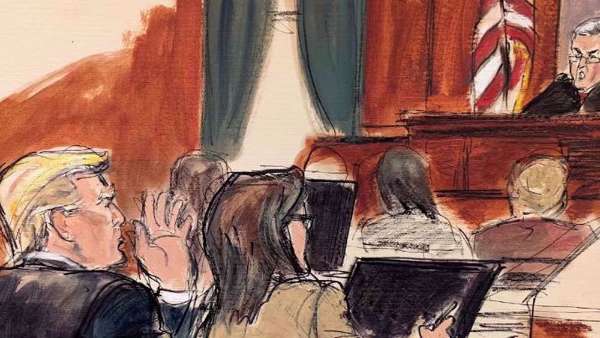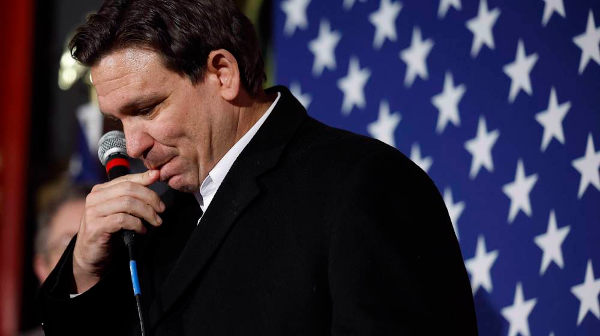
President Joe Biden with Mexican President Andres Manuel Lopez Obrador and Canadian Prime Minister Justin Trudeau at the White House on Thursday, Nov. 18, 2021. (Photo by AP)
US President Joe Biden hosted the leaders of Canada and Mexico on Thursday in the first North American regional summit since 2016 amidst tensions over trade and immigration.
The so-called ‘Three Amigos Summití at the White House came in the backdrop of dispute over proposed electric vehicle (EV) tax credits and ‘Buy Americaní policies of the Biden administration.
Pertinently, it was the first summit between the three sides since former US President Donald Trump walked out of it in 2017, soon after entering the White House.
The unhinged former US president had based his election campaign on insulting Mexicans and his relations with Canada also were far from warm, especially after he dumped the North America Free Trade Agreement.
Biden, however, has sought to revive the summit in order to boost the North American economic integration. But, there are far too many disagreements on key issues between the three sides.
Launched in 2005 as part of the ‘Security and Prosperity Partnershipí, the trilateral summit aims to improve information sharing and cooperation among the three North American giants.
The three-party meeting seeks advancement of North American economic cooperation, but Canada and Mexico have both expressed concern about Bidenís ‘Buy Americaní provisions and a proposed EV tax credit that is likely to favor unionized, US-based manufacturers.
Washington is the largest trading partner for both Mexico and Canada, and cars and trucks are the most traded manufactured goods among the three countries.
Canada and Mexico both seek equal share in the business as they compete to woo companies to set up plants for EV supply chains in their countries.
While Bidenís revival of the summit has been welcomed, there are many real irritants to overcome.
Trudeau is not happy with tax credits that Biden is creating for US electronic vehicles, which would hit the job market in Canada. On the other side, Mexico is concerned about US protectionism.
"We can meet all the challenges if we just take the time to speak with one another, by working together," Biden said during the meeting on Thursday, while Canadian Prime Minister Justin Trudeau hailed the ties between the three countries as "extremely strong".
Earlier, in a one-on-one meeting with Trudeau, Biden said US-Canada ties are "one of the easiest relationships that we have".
And Mexican President Andres Manuel Lopez Obrador, in a separate bilateral meeting, hailed Bidenís approach, saying "our relations must always be based on respect".
Bidenís attempt to regain confidence of Canadians and Mexicans will likely face multiple hurdles.
Apart from his public argument with Trudeau, Trump had imposed tariffs on Canadian aluminum and steel. He also declared a national emergency on the Mexican border and slammed illegal immigrants.
Not much has changed though under the new administration in Washington. Biden is trying to revive the struggling US industrial base, on the lines of ‘Buy Americaní policies of his predecessor, which has not gone down well with neighbors.
Mexico and Canada are alarmed at Bidenís proposal for a tax credit encouraging US production of electric vehicles, like the powerful all-electric Hummer the president test-drove during a visit to a General Motors plant Wednesday in Detroit.
Another sticking point is Bidenís ‘Buy Americaní policy for the federal government when it shops for its huge fleet of automobiles - something Canada says is undisguised protectionism.
Apart from that, Mexico is still facing pressure to resolve the immigration crisis on the US southern border.
The Mexican president, alarmed by the rise of China, warned that North American countries could be headed for an "unacceptable imbalance" of economic power with Beijing that "would keep alive the temptation of trying to resolve this disparity by use of force".
"Together as North America we stand strong, and look to better build back our communities, our infrastructure, and our shared future as integrated partners," the three leaders said in a joint statement.
LINK: https://www.ansarpress.com/english/23996
TAGS:






























 NY attorney general fires back at Trumpís defense of financial statements
NY attorney general fires back at Trumpís defense of financial statements 




